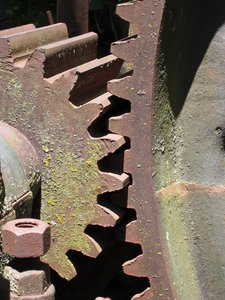A worker at a Bumble Bee Tuna plant was cooked to death inside of an industrial oven, referred to as a steamer machine. The worker, according to The Examiner, was 62-years-old.
When emergency response teams arrived on scene, the man was pronounced dead. The accident forced the plant to shut down through late last week and over the weekend. The accident is now being investigated by state workplace health and safety officials. They’re looking into how exactly the accident happened. The man had been employed with the company for close to 10 years.

Once the investigation is complete and officials determine the cause of the accident, it will be decided if the plant violated any of the state or federal safety and health regulations.
Our Boston workers’ compensation attorneys understand that factory settings come with a whole heap of dangers and accident risks. It’s the responsibility of the employers and the companies to make sure that all machinery is properly safeguarded. There are federal and state safety and health standards which must be achieved at all work sites. Your safety and your well-being relies on it!
Not only can people be burned to death, but bones can be crushed, sight can be lost and an employee can suffer other lifelong debilitating injuries. The truth of the matter is that the list of possible machinery-related injuries is as long as it is horrifying. This is why it is essential to make sure that all machinery is safeguarded. Moving machine parts can easily injure or kill a person. Luckily, these kinds of accidents are preventable with the proper safety measures.
If you want to stay safe, there’s one thing you’re going to want to remember. If a machine has moving parts that could potentially cause injury, then you’re going to want to guard it. Regardless of how skilled you are the the job that you do, the truth of the matter is that accidents happen and that’s why we safeguard machinery.
What does a safeguard do?
-It must prevent contact between the worker and the dangerous machinery.
-It has to be secure. You don’t want it to be easily tampered with or removed. You want it there, you want it to work and you want it to be sturdy.
-It has to protect the machinery from falling object. You never want foreign objects to get into machinery. Not only could these falling parts become an easy projectile, but they can cause the machine to break, too.
-It shouldn’t create any hazards. A safeguard is supposed to make things safer, not to create more problems. There should be no sharp edges or protruding bolts or anything of the sort on or around your safe guard.
-It shouldn’t interfere. Safeguards should never make your job more difficult or more time consuming.
The workers’ compensation attorneys at Jeffrey Glassman Injury Lawyers are here to offer free and confidential consultations to those who have been injured on the job. Call (617) 777-7777 today!
More Blog Entries:
Stopping Flu Outbreak at Work in Massachusetts, Massachusetts Workers Compensation Lawyers Blog, October 15, 2012
Massachusetts Work Accident Rates Lowest in New England, Massachusetts Workers Compensation Lawyers Blog, October 13, 2012
 Massachusetts Workers Compensation Lawyers Blog
Massachusetts Workers Compensation Lawyers Blog

